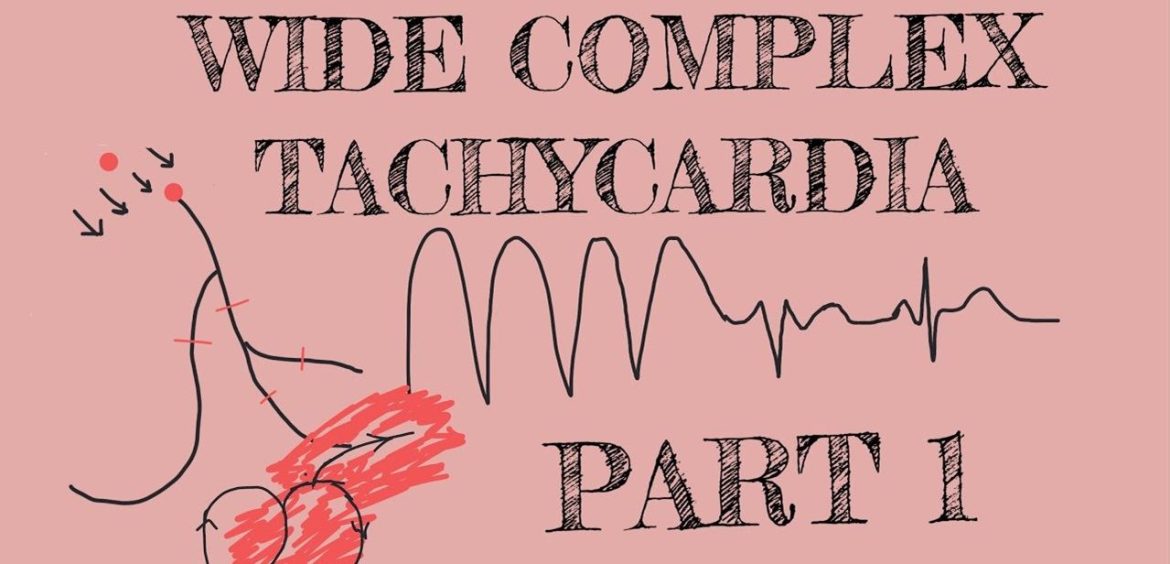Wide complex tachycardia (WCT) is a significant and often life-threatening cardiac condition that necessitates prompt recognition and management. This professional article aims to elucidate the concept, etiology, diagnosis, and treatment of wide complex tachycardia, providing a comprehensive understanding for healthcare professionals.
What Is Wide Complex Tachycardia
Wide complex tachycardia refers to a rapid heart rhythm characterized by a QRS complex duration of 120 milliseconds (ms) or more on an electrocardiogram (ECG). The QRS complex represents the depolarization of the ventricles, and its widening indicates abnormal electrical conduction through the ventricles. Tachycardia is defined as a heart rate exceeding 100 beats per minute (bpm). Therefore, WCT is essentially a fast heart rate with broad QRS complexes, signifying potential underlying pathologies.
SEE ALSO: What Triggers Long QT Syndrome
Etiology of Wide Complex Tachycardia
The causes of WCT can be broadly categorized into ventricular and supraventricular origins. Accurate differentiation between these origins is crucial for appropriate management.
Ventricular Tachycardia (VT)
VT is the most common cause of WCT, originating from the ventricles. It can be further classified into:
Sustained VT: Lasting more than 30 seconds or requiring termination due to hemodynamic instability.
Non-sustained VT: Lasting less than 30 seconds and self-terminating.
Supraventricular Tachycardia (SVT) with Aberrancy
In some cases, SVT can present as WCT due to aberrant conduction pathways. This occurs when the rapid atrial impulses conduct through the ventricles via an abnormal pathway, leading to widened QRS complexes. Common types include:
Atrial Fibrillation with Aberrancy: Rapid, irregular atrial activity with irregular ventricular response.
Atrial Flutter with Aberrancy: Regular atrial activity with rapid ventricular response and aberrant conduction.
Paroxysmal SVT with Bundle Branch Block (BBB): Regular rapid rhythm with conduction delay in the ventricles.
Diagnosis of Wide Complex Tachycardia
The diagnosis of WCT involves a detailed clinical evaluation, ECG analysis, and sometimes advanced imaging or electrophysiological studies. The following steps are critical:
Clinical Evaluation
History and Physical Examination: Assess for symptoms such as palpitations, dizziness, syncope, or chest pain. Evaluate for underlying heart disease, electrolyte imbalances, or medication use.
Electrocardiogram (ECG) Analysis
The ECG is pivotal in diagnosing WCT. Key features include:
QRS Duration: A QRS complex ≥120 ms.
QRS Morphology: Evaluate the shape and axis of the QRS complex. Specific patterns suggest VT or SVT with aberrancy.
AV Dissociation: Independent atrial and ventricular activities often indicate VT.
Capture and Fusion Beats: Intermittent normal QRS complexes amidst WCT suggest VT.
Advanced Diagnostic Techniques
Electrophysiological Study (EPS): Invasive procedure to map the electrical activity of the heart and identify arrhythmia origins.
Imaging Studies: Echocardiography or cardiac MRI to assess structural heart disease.
Management of Wide Complex Tachycardia
The management of WCT is dictated by the underlying cause and hemodynamic stability of the patient. Immediate stabilization and subsequent definitive therapy are essential.
Acute Management
Hemodynamically Unstable Patients: Immediate synchronized cardioversion is warranted for patients with hypotension, altered mental status, chest pain, or heart failure.
Hemodynamically Stable Patients: Pharmacologic treatment can be initiated. The choice of drug depends on the suspected etiology.
Pharmacologic Therapy
For Ventricular Tachycardia:
Amiodarone: Effective for both stable and unstable VT.
Procainamide: Alternative for stable VT.
Lidocaine: Occasionally used, particularly in ischemic VT.
For SVT with Aberrancy:
Adenosine: Useful for terminating certain SVTs but contraindicated in wide complex tachycardia of unknown origin due to potential risk in VT.
Beta-blockers and Calcium Channel Blockers: Used in atrial fibrillation or flutter with aberrancy.
Long-term Management
Implantable Cardioverter-Defibrillator (ICD): Indicated for patients at high risk of recurrent VT or sudden cardiac death.
Catheter Ablation: Effective for refractory or recurrent VT, particularly in structural heart disease.
Antiarrhythmic Medications: Long-term use for prevention of recurrent VT or SVT.
Differential Diagnosis of Wide Complex Tachycardia
Differentiating VT from SVT with aberrancy is crucial but challenging. Several algorithms and criteria assist in this process:
Brugada Criteria
A stepwise approach evaluating the absence of RS complexes in precordial leads, AV dissociation, and specific QRS morphologies.
Vereckei Criteria
A simplified algorithm focusing on the initial R-wave in aVR lead, among other parameters.
QRS Morphology
Specific patterns such as a right bundle branch block (RBBB) or left bundle branch block (LBBB) morphology can provide clues.
Prognosis And Complications of Wide Complex Tachycardia
The prognosis of WCT depends on the underlying cause and the effectiveness of treatment. Potential complications include:
Cardiogenic Shock: Due to rapid, ineffective ventricular contractions.
Sudden Cardiac Death: Particularly in untreated or refractory VT.
Heart Failure: Chronic WCT can lead to ventricular dysfunction and heart failure.
Conclusion
Wide complex tachycardia is a critical cardiac condition requiring prompt and accurate diagnosis to guide appropriate management. Understanding the etiologies, diagnostic strategies, and treatment options is essential for improving patient outcomes. Early intervention and appropriate long-term management are pivotal in preventing complications and ensuring optimal cardiovascular health.

